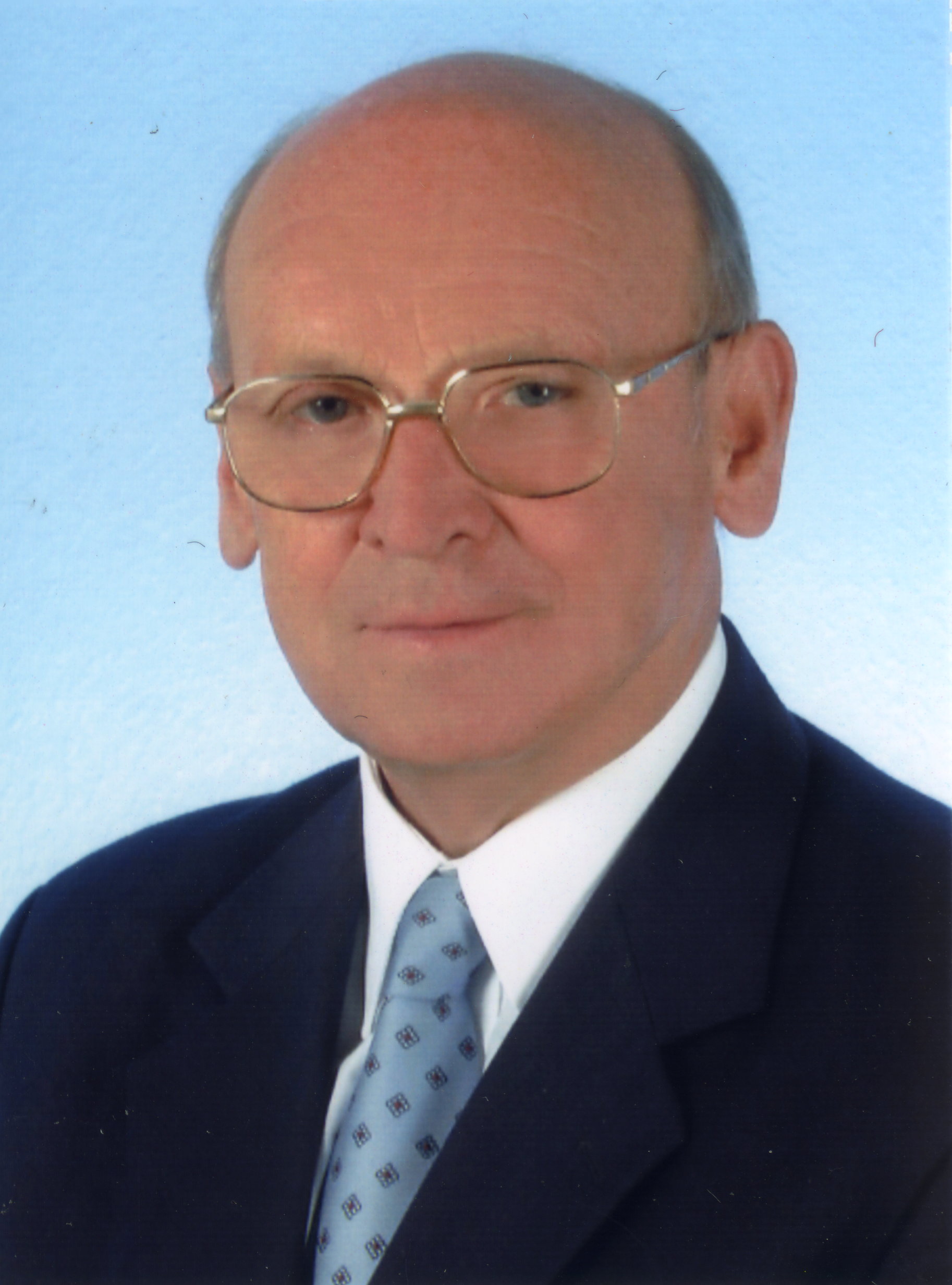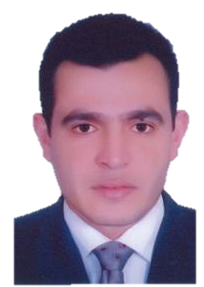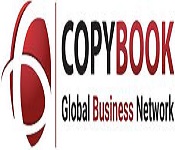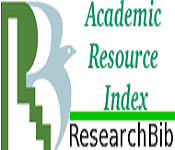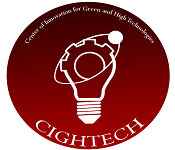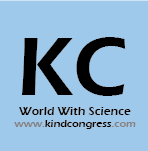Theme: Exploring the new dimension and discoveries in the field of Chemistry
Chemistry World 2019
On behalf of the Organizing Committee of Chemistry Conferences 2019 , We are pleased to announce that the 10th International Conference on Chemistry will be held during May 09-10, 2019 in Amsterdam, Netherlands. With a theme of ‘Exploring the new dimension and discoveries in the field of Chemistry’, the scope and scale of the 2019 conference means that there will be abundant opportunities to gather information, network and develop your knowledge alongside leaders in your field.
The conference aims at covering fundamental and applied chemistry in the broadest sense and will be hosted by the Conference series LLC Ltd. Chemistry World 2019 has been organized to bring together leading researchers, scientists, engineers and industry professionals to exchange their experiences and create an environment of new ideas generation and sparking innovation. In the meantime, this event values the critical relationship between academia and industry. Both are remarkably crucial because academia and industry will be able to harmonize the knowledge and industrial requirement into the real practical solutions
The conference will be a chemistry related disciplinary event considering all the major areas of chemistry, including inorganic, physical, organic, analytical and biochemistry. Besides fundamentals, the conference also presents advanced topics like Materials Chemistry, Polymer Chemistry, Radioactive Chemistry, Environmental Chemistry, Green Chemistry and Emerging techniques in Chemistry. Interfaces with other sciences and other research areas will be actively encouraged.
Track 1: Organic Chemistry
All new ideas inthe field of organic chemistry research are welcome to Chemistry World 2019, its a pleasure for us to organize conference and provide platform for new researchers to discuss and network with experts. It is an excellent opportunity for academic as well as industrial chemists to collaborate and share their research.
Track 2: Medicinal Chemistry
The subject of medicinal chemistry explains the design and manufacturing of compounds that can be used for the prevention, remedy or treatment of human and animal diseases.
Medicinal chemistry was defined by using IUPAC designated commission as “it concerns the discovery, the development, the identification and the interpretation of the mode of action of biologically active compounds at the molecular level”.
Medicinal chemistry is the application of chemical research methods to the synthesis of pharmaceuticals. During the early levels of medicinal chemistry development, scientists have been particularly concerned with the isolation of medicinal agents discovered in plants. Today, scientists in this field are also equally involved with the introduction of new synthetic compounds as drugs. Medicinal chemistry is almost constantly geared toward drug discovery and development. Medicinal chemists apply their chemistry training to the method of synthesizing new pharmaceuticals. They also work on improving the procedure by way of which other pharmaceuticals are made. Most chemists work with a team of scientists from distinctive disciplines, which includes biologists, toxicologists, pharmacologists, theoretical chemists, microbiologists, and bio pharmacists. Together, this group makes use of sophisticated analytical methods to synthesize and take a look at new drug products and to advance the most reasonably priced and eco-friendly means of production.
Track 3: Inorganic Chemistry
Organic chemistry is defined as the chemistry of hydrocarbon compounds and their derivatives then inorganic chemistry can be described generally as the chemistry of "every-thing else." This includes all the remaining elements in the periodic table, as well as carbon, which performs a principal role in many inorganic compounds. Organometallic chemistry, a very large and rapidly developing field, bridges these two areas via thinking about compounds containing direct metal-carbon bonds, and consists of catalysis of many organic reactions.
Track 4: Analytical Chemistry
Defining analytical chemistry as the application of chemical knowledge ignores the special point of view that analytical chemists deliver to learn about of chemistry. The craft of analytical chemistry is now not in performing a routine analysis on a routine sample, which greater correctly is known as chemical analysis, but in enhancing set up analytical methods, in extending existing analytical techniques to new kinds of samples, and in creating new analytical techniques for measuring chemical phenomena .
Here is one example of this difference between analytical chemistry and chemical analysis. Mining engineers evaluate the value of an ore by comparing the price of casting off the ore with the value of its contents. To estimate its value they analyze a sample of the ore. The challenge of creating and validating a suitable quantitative analytical technique is the analytical chemist’s responsibility. After its development, the routine, daily application of the analytical technique is the job of the chemical analyst.
Track 5: Agricultural and Food Chemistry
Agricultural chemists work with food producers to increase yields, enhance quality, and decrease costs. They additionally learn about the causes and outcomes of biochemical reactions associated with plant and animal growth, are seeking approaches to manage these reactions, and develop chemical products that supply help in controlling these reactions. Chemical products developed to help in the production of food, feed, and fiber consist of herbicides, fungicides, insecticides, plant growth regulators, fertilizers, and animal feed supplements. Agricultural chemistry is most often linked to food and fiber production, specifically for human consumption. Increased agricultural production, in combination with additional useful resource Consumption and waste generation, has induced environmental degradation. By understanding key ideas in agricultural chemistry, we can make use of the soil resource to produce a sufficient food supply and defend the environment.
Food chemistry is learning about of chemical processes and interactions of all biological and non-biological elements of foods. His work in the food chemist depends closely on expertise in chemistry. On the other hand, food chemistry is additionally related to biochemistry (especially in learning about chemical changes of food constituents) and the science of nutrition (nutritive cost of foods, contaminants) and microbiology (spoilage and preservation, food safety).This self-discipline additionally encompasses how products alter under specific food processing methods and ways either to enhance or to stop them from happening.
Track 6: Physical & Computational Chemistry
Chemistry deals with the changes which matter undergoes by the interaction of its various forms and in a broad sense studies the structure of matter by analysis and synthesis. Physics on the other hand, is concerned with the general properties of matter. (Kinetic, thermal, electrical, etc.) And with process in which matter suffers no chemical change. Physical Chemistry embraces both of the above problems viz., structure and properties of matter and provides a common ground between the two sister’s sciences. Besides physical chemistry endeavors to penetrate more deeply into the structure of atoms and molecules and their different states of aggregation. It also studies the physical characteristics of chemical reactions with respect to electrical, thermal, kinetic, photo-chemical and such other properties.
It also provides the basis of modern methods of analysis, the determination of structure, and the elucidation of the manner in which chemical reactions occur. To do all this, it draws on two of the great foundations of modern physical science, thermodynamics and quantum mechanics.
Track 7: Industrial and Engineering Chemistry
Industrial chemistry is concerned with using chemical and physical processes to transform raw substances into products that are really useful to humanity. This consists of the manufacture of primary chemicals to produce products for a range of industries. Industrial chemistry can be thinking of as an enterprise that generates synthetic replacements for natural products.
Industrial chemistry is part of the long chain in the design and manufacturing process. Industrial chemists deal with the ideas, the design, the testing, and prototyping of new industrial products. In order to design something completely new to assist resolve the important issues of the world their necessary skills are, in-depth knowledge and application of chemistry and creativity with chemicals. Whereas a chemical engineer deals with the entire process of altering raw substances into a beneficial, marketable product, an industrial chemist would look mainly at the nitty gritty science stuff, scrutinising the chemical components and designing a ‘method’ for the product then work out the excellent way to make it.
The industrial chemist precedes the chemical engineer in the process of bringing something to market. The primary areas of research and teaching are on the catalyst and process development, mechanical and thermal unit operations and method of chemical reaction engineering. The Chemical Technology permits efficient manufacturing of basic, intermediate and end products.
Track 8: Biochemistry
Biochemistry is the application of chemistry to the find out about of biological processes at the cell and molecular level. The biochemist seeks to determine how unique molecules such as proteins, nucleic acids, lipids, vitamins and hormones function in such processes. Particular emphasis is positioned on legislation of chemical reactions in living cells.. Biochemistry has become the foundation for understanding all biological processes. It has provided explanations for the motives of many ailments in humans, animals and plants. It can frequently suggest ways by way of which such diseases may also be treated or cured.
Track 9: Environmental Chemistry
Environmental chemistry is a very much focused branch of chemistry, containing aspects of organic chemistry, analytical chemistry, physical chemistry and inorganic chemistry, as well as more diverse areas, such as biology, toxicology, biochemistry, public health and epidemiology. Environmental chemists work in a variety of public, private and government laboratories.
One of the environmental chemistry’s foremost challenges is the determination of the nature and quantity of particular pollutants in the environment. Thus, chemical analysis is a crucial first step in environmental chemistry research.
Environmental chemistry is socially important because it offers with the environmental impact of pollutants, the reduction of contamination and management of the environment. Environmental chemist learn about the behavior of pollutants and their environmental outcomes on the air, water and soil environments, as well as their effects on human health and the natural environment.
Track 10: Materials Chemistry
Materials chemistry includes the use of chemistry for the design and synthesis of substances with fascinating or potentially beneficial physical characteristics, such as magnetic, optical, structural or catalytic properties.
The idea of “design” is essential in defining the work of substances chemists. Rather than in simple terms inspect properties, the materials chemist tries to manipulate the synthetic procedure to produce a favoured function. The relationship between the method of synthesis and the design of the final product is critical to a materials chemist.
Functional substances are building blocks of modern-day society and play a crucial function in the evolution of technology. Materials chemistry is unique in presenting the intellectual basis to design, create, and recognize new forms of matter, let it be organic, inorganic, or hybrid materials. From nanomaterial and molecular devices to polymers and prolonged solids, chemistry is developing a world of new materials as catalysts, sensors, molecular transporters, artificial scaffolds, molecular filters, and light-emitting or electron-conducting ensembles, with the potential for extensive scientific and societal impact.
Track 11: Green Chemistry and Renewable Resources
Green chemistry is the utilization of a set of concepts that reduces or eliminates the use or generation of hazardous substances in the design, manufacture and application of chemical products. It is not a new branch of science. It is a new philosophical approach that via application and extension of the principles of green chemistry can make a contribution sustainable development.
Green chemistry is quite essential in growing the alternatives for energy generation (hydrogen cell, fuels cells, biofuels, etc.). As well as continue the route towards energy efficiency with catalysis and product at the forefront. By the help of green chemistry the approaches toward the renewable resources can be made increasingly more viable technologically and economically. There is a broad range of renewable feed stocks along with trees, grasses, shrubs, marine resources wastes which is used for creating new, sustainable, low environmental influence routes to essential chemical products, and biofuels. Renewable resources are used every time possible at the stop of their use, non-biodegradable substances are recycled. Using the environment technology we can conserve the natural environment and curb the negative influences of human involvement.
Track 12: Polymer Chemistry
Polymer science is a so pervasive and relevant self-discipline in the contemporary situation that it is needless to spend plenty word to emphasize its role. As a matter of fact, it has been proposed to designate our time as the polymer age, to mark its big difference from preceding mankind eras dominated by way of a sequence of various materials (the stone, the bronze, the iron ages) and to remark that our lifestyle would be hardly ever workable besides polymers. The advent and the world scale establishment of the polymer technology have shaped the world around us and have profoundly changed its perspectives, as it happens for any revolutionary technology. Despite the incredible achievements we have witnessed alongside the years, many exciting challenges remain to be faced; these are properly worth to handle due to the fact of their have an impact on our everyday life: examples encompass green polymer chemistry, environmental pollution issues, polymers for energy storage and delivery, polymers for the human health.
Track 13: Nano science and technology
Nano science and technology is the branch of science that studies systems and manipulates matter on atomic, molecular and supra molecular scales (the nanometre scale). On such a length scale, quantum mechanical and surface boundary effects turn out to be relevant, conferring properties on materials that are now not observable on larger, macroscopic length scales.
Nanotechnology, the manipulation of count at the atomic and molecular scale to create substances with remarkably different and new properties, is a swiftly increasing area of research with massive potential to revolutionize our lives and to supply technological solutions to our problems in agriculture, energy, the environment and medicine. In order to utterly understand this potential, we want to be able to manage the synthesis of nanoparticles, the development of nano-devices, and the characterization of materials on the nano scale and to understand the effects of these things on environment and health.
Track 14: Forensic Chemistry
Forensic Chemistry in its broadest sense is the application of techniques and principles of science for the purpose of administration of criminal justice system. Chemistry is an integral part of forensic science. Forensic scientists must understand the principles, concepts and techniques of chemistry perform their duties in an effective manner. Scientists of all types are often interested in the composition of a substance. However, the type of substance may vary according to their nature of work. Like, pharmaceutical scientists identify the substances in a drug sample to set their expiry dates. Similarly forensic scientists identify substance to connect suspects to crimes or to reconstruct a crime i.e. to determine how a crime has been committed.
Forensic chemists perform different analyses to identify materials in order to determine the nature and composition of such evidence. A highly trained forensic chemist is capable of determining the composition and nature of materials and predicting the source as well as matching evidences collected from the crime scene with the control sample. Modern chemistry employs the traditional analytical techniques hand in hand with much younger methods of analysis.
A vast range of analytical techniques are generally employed in forensic analyses. This includes ultraviolet, visible and infrared, spectrophotometry; GCMS; high pressure liquid chromatography; neutron activation analysis; and atomic absorption spectrophotometry. The choice of technique and instrument to be used depends on the type of sample to be analysed.
Track 15: Natural Products & Biodiversity
Biodiversity the diversity of living forms has attracted a terrific deal of interest and concern for the reason that biological resources constitute an asset with a great deal of immediate as well as potential benefits for the quality of life.
At current in many industrialized nations, fifty per cent of all prescribed pills are derived or synthesized from natural products, the solely accessible sources are animals, marine, plants, and micro-organisms. It is viewed that the structural and biological varieties of their constituents offer a unique and renewable useful resource for discovering of potential new drugs and biological entities. Medicinal Chemistry lookup on extracts from plant life and other living organisms that lead to the discovery of new therapeutic dealers can also be an essential factor towards maintaining of biodiversity.
Past Conference Report-
The 9th Global Chemistry Congress 2018 hosted by the Conference Series LLC Ltd. was held during July 23-24, 2018 at Lisbon, Portugal based on the theme “Emphasizing the Current Advancements and Novel Approaches in Chemistry and Related Fields". Benevolent response and active participation was received from the Organizing Committee Members along with Scientists, Researchers, Students and leaders from the area of Chemistry who made this event successful.
We extend our grateful thanks to all the momentous speakers, conference attendees who contributed towards the successful run of the conference.
The conference was marked with the presence of far-famed scientists, proficient researchers, students and delegates representing from different countries ultimately driving the event into the trail of success.
The meeting was carried out through various sessions, in which the discussions were held on the following major scientific tracks:
- Industrial and Engineering Chemistry
- Organic Chemistry
- Polymer Chemistry
- Physical and Theoretical Chemistry
- Nanoscience and Technology
- Environmental Chemistry
- Medicinal Chemistry
- Inorganic Chemistry
- Analytical Chemistry
- Natural Product and Biodiversity
Global Chemistry Congress offers its heartfelt appreciation to organizations such as our esteemed Media Partners, Collaborators and other eminent personalities who supported the conference by promoting in various modes online and offline which helped the conference reach every nook and corner of the globe. It also took privilege to felicitate the Keynote Speakers, Organizing Committee Members, Chairs and Co-chairs who supported this event.
The conference was commenced with an opening ceremony followed by Keynote sessions and followed by series of lectures delivered by both Honorable Guests and members of the Keynote forum. The adepts who promote the theme with their elegant talk were:
- Marek Trojanowicz - University of Warsaw, Poland
- Bilge Sener- Gazi University, Turkey
- Lali Gurchumelia- TSU Rafael Agladze Institute of Inorganic Chemistry and Electrochemistry, Georgia
- Doan Pham Minh- Université de Toulouse(CNRS), France
- Maria Helena Casimiro- Universidade de Lisboa, Portugal
- Edit Csapó- University of Szeged, Hungary
- Maria Helena Casimiro- Universidade de Lisboa, Portugal
- Ahmed M.Youssef- National Research Centre, Egypt
- Goncagul Serdaroglu- Sivas Cumhuriyet University, Turkey
- Mónica Hernández Rodrígueza- ISMM, Holguín, Cuba
- Wesley da Silva Borges - ILES/ULBRA, Itumbiara, Brazil
We are thankful to all the Speakers who gave there remarkable presentation in the conference.
We would like to extend our gratitude towards Poster Judge Dr. Marek Trojanowicz University of Warsaw, Poland for the evaluation of Poster Presentations. We also congratulate our Best Poster awardees for their outstanding performances in the field of Chemistry and appreciate all the participants who had put their efforts in poster presentations and sincerely wish them success in future endeavours.
The Organizing Committee would like to thank the all our Moderator of the conference, Miss. María Vera Tárraga, Spain , Mrs.Mónica Hernández Rodrígueza, Cuba and. Dr. Maria Helena Casimiro, Portugal who contributed a lot for the smooth functioning of this event.
With sustainable excitement for success of Global Chemistry 2018, Conference Series LLC Ltd is glad to announce next annual meeting 10th International Conference on Chemistry on May 09-10, 2019 at Amsterdam, Netherlands .
We welcome all the eminent researchers, students and delegate participants to take part in this upcoming conference to witness invaluable scientific discussions and contribute to the future innovations in the field of Chemistry Research.
Mark your calendars for the upcoming Conference; we are hoping to see you soon!
Let us meet again @ Amsterdam, Netherland.
Conference Highlights
- Organic Chemistry
- Medicinal Chemistry
- Inorganic Chemistry
- Analytical Chemistry
- Agricultural and Food Chemistry
- Physical & Computational Chemistry
- Industrial and Engineering Chemistry
- Biochemistry
- Environmental Chemistry
- Material Chemistry
- Green Chemistry and Renewable Resources
- Polymer Chemistry
- Nano Science and Technology
- Forensic Chemistry
- Natural Product and Biodiversity
To share your views and research, please click here to register for the Conference.
To Collaborate Scientific Professionals around the World
| Conference Date | May 09-10, 2019 | ||
| Sponsors & Exhibitors |
|
||
| Speaker Opportunity Closed | Day 1 | ||
| Poster Opportunity Closed | Click Here to View | ||
Useful Links
Special Issues
All accepted abstracts will be published in respective Our International Journals.
- Journal of Modern Chemistry & Applications
- Organic Chemistry: Current Research
- Journal of Natural Products Chemistry & Research
Abstracts will be provided with Digital Object Identifier by


